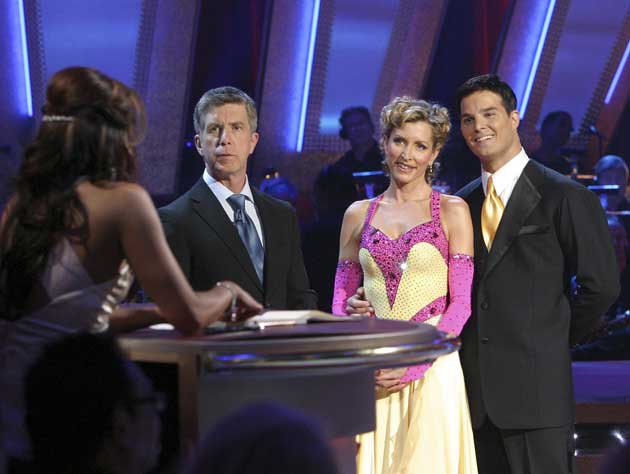Britain rules the world's screens, 'Strictly' speaking

Your support helps us to tell the story
From reproductive rights to climate change to Big Tech, The Independent is on the ground when the story is developing. Whether it's investigating the financials of Elon Musk's pro-Trump PAC or producing our latest documentary, 'The A Word', which shines a light on the American women fighting for reproductive rights, we know how important it is to parse out the facts from the messaging.
At such a critical moment in US history, we need reporters on the ground. Your donation allows us to keep sending journalists to speak to both sides of the story.
The Independent is trusted by Americans across the entire political spectrum. And unlike many other quality news outlets, we choose not to lock Americans out of our reporting and analysis with paywalls. We believe quality journalism should be available to everyone, paid for by those who can afford it.
Your support makes all the difference.With its unlikely mix of celebrities, sequins, twinkle-toed rugby stars and an octogenarian entertainer, Strictly Come Dancing is an improbable television hit, and yet up to 10 million people will tune in tonight to see which lumbering star is kicked off. But its popularity isn't confined to Britain. New research shows it is now the most popular television programme in the world.
The format is sold internationally as Dancing with the Stars to around 38 countries covering all cultures – from Chile to Japan and India to Slovakia. A survey by the industry magazine Television Business International shows it is also the most watched television show across the globe.
Whereas American TV once ruled the airwaves, the results found popular US drama shows such as Lost, Prison Break and Desperate Housewives were trounced by the magical formula of old-style glamour, big band music, elegant dancers and a hint of tasteful raunch, with the twist of often cumbersome celebrities dragged around a dance floor.
Strictly Come Dancing is at the forefront of a surge in British TV globally. Second on the most-watched list is Simon Cowell's Got Talent formula, which has spread as far as Lebanon and the Philippines. An old warhorse, Who Wants to Be a Millionaire?, was the next British entry behind US drama shows at number six.
British formats are responsible for more than half – 53 per cent – of the world's television output, according to the Producers Alliance for Cinema and Television (Pact), which represents the UK's independent television producers.
The global boom is driven by – but not exclusive to – reality shows. Other BBC big sellers include Top Gear, Antiques Roadshow, The Office and What Not to Wear. Not to be outdone, independent television sells The X Factor and Who Wants to Be a Millionaire? to more than 20 nations.
In America, a remade Life on Mars with Harvey Keitel and Christopher Imperioli of The Sopranos drew critical acclaim. The Office, meanwhile, is in the vanguard of British comedy shows, including Spaced, Absolutely Fabulous and Peep Show, that are being remade in the US.
"The figure of 53 per cent is astonishing," said Adam Minns, director of policy at Pact, which revealed this week that the value of British TV exports rose by nearly a quarter in 2007 to more than £663m. "We are the world leader by a country mile in exporting format rights of TV programmes. Much of the credit must go the independent sector. They have gone aggressively into the worldwide market place. Many are setting up offices in America and Australia."
Wayne Garvie, the BBC's director of worldwide content, said that TV was now one of Britain's biggest exports. "Dancing with the Stars is the most popular format in the world and is worth around £60m a year," he said. "I don't think we should underestimate our creativity. We are a country that understands popular culture better than any other country.
"We don't really have a film industry, unlike America, so our brightest and best gravitate towards television."
Join our commenting forum
Join thought-provoking conversations, follow other Independent readers and see their replies
Comments